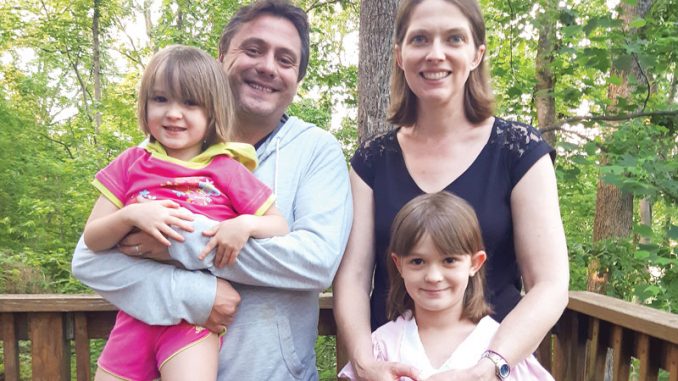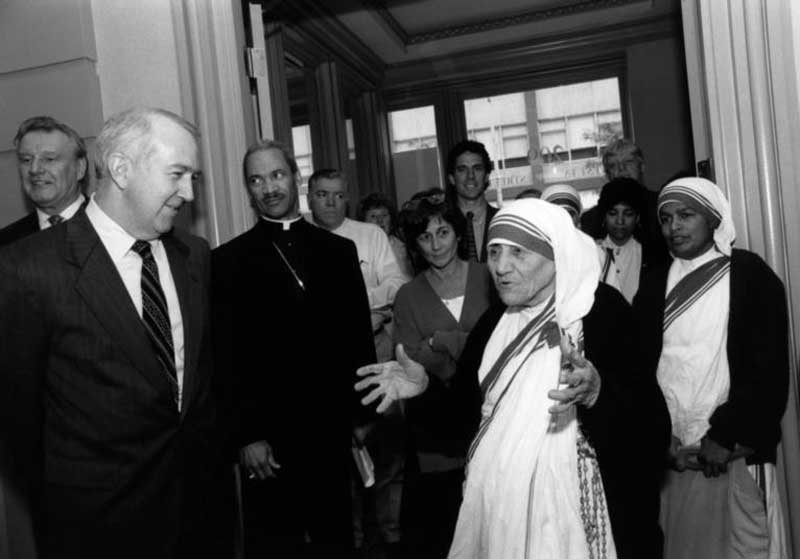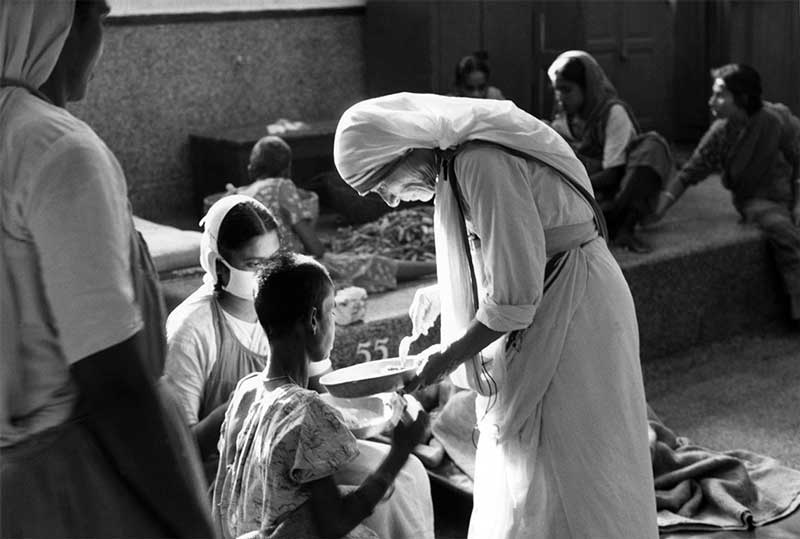
SENECA—Working from home has become the new normal for many during the ongoing coronavirus pandemic, though for Katherine Overcamp and her family the change comes with bigger challenges than usual.
Overcamp and her husband, Sylvain Duhau, work in the Democratic Republic of the Congo. Overcamp is with Catholic Relief Services and Duhau works with Cordaid International. They’re now in their fifth year working, living and raising a young family in the Congo in sub-Saharan Africa, which is 7,000 miles, or five time zones removed from the Eastern U.S.
Two months ago, the couple, along with their two children, were aboard the last flight out of Kinshasa, Congo’s capital. The 14-hour trip from Kinshasa to Washington, D.C, was arranged by the U.S State Department ahead of the pending travel restrictions to and from Africa and Europe. All were part of frantic efforts in the U.S. and other countries to mitigate the spread of the coronavirus.
After spending a night in Washington, the family caught a flight to Greenville. From there, they took a taxi to a home they rented via the Internet in the Salem community in northern Oconee County. They self-quarantined there for two weeks, then moved in with Overcamp’s parents at their home near Clemson. The family is longtime parishioners at St. Andrew Church in Clemson.
Since moving in with her parents, Overcamp is up early most days, either on the phone, a computer or both.
“It’s around noon in Congo when I start making calls around 7 a.m., our time,” Overcamp said recently following a day of remote work, which typically ends around 3 p.m. local time. Her husband, a French citizen, also works remotely. They split duties caring for their two daughters as the other tends to their respective responsibilities overseas.
Overcamp, who has worked for CRS in Africa since 2009, is the head of programming in the Congo, coordinating short-term emergency humanitarian relief and long-term assistance and educational efforts, some of which were impacted by the worldwide response to the pandemic.
She said the entire CRS office in Kinshasa has been closed since mid-March, with the staff now working remotely. Many activities were adjusted to continue despite the shutdown, but some have stopped.

“For most of our activities, we’ve been able to find other ways of continuing them,” she said, either through radio programming or using previously trained community volunteers to carry out the work.
For example, two years ago, CRS started food security programs in rural parts of central Congo, using local “lead mothers” who work with a small group of women in the lead mother’s neighborhood.
“We have been working with them over the last couple of years on different educational materials about nutrition, water, sanitation and child development,” Overcamp said, adding that they can now apply that knowledge to the current challenge.
“They already have a base of knowledge associated with many of the messages that are so important in COVID prevention,” she said. “They’ve been very effective in spreading messages on COVID prevention, but also continuing the other work.
“Where we have that network of volunteers, we’ve been able to continue to function pretty well,” she said.
Though programs have continued in much of the rural areas of the Congo still free from COVID-19, Kinshasa, a sprawling city of around 10 million people, has been hard hit, Overcamp said. As a result, CRS has suspended urban programs for those affected by HIV and AIDS in Kinshasa and in other large cities in the country.
“We’ve had to step back from having face-to-face meetings, and instead supporting them by telephone,” she said.
Overcamp said relief teams have also curtailed travel within the Congo to outlying, virus-free communities “so we don’t bring the virus to them.”
More than half of the Congo’s population is Roman Catholic. They have helped CRS with its work in the country, which is rich in natural resources but has been poorly managed for decades due to civil and political unrest.
“The Catholic Church holds a position of moral authority in the country, and it is certainly listened to by the leadership,” regardless of what political party is in power, Overcamp said. “We work quite closely with the Church” and with Caritas Congo Republic.
“We are a part of the Caritas Internationalis Conference,” she said.
Overcamp doesn’t know when she and her family will be able to return to the Congo.
“It’s going to depend on a lot of factors, including how the virus progresses both here and in the Congo. It’s hard to practice social distancing in Kinshasa, but the government has put in measures to isolate the city from the rest of country,” she said.
While the family looks forward to returning to Kinshasa “in the coming months,” it wants assurances the situation there will be secure.
“We just have to make sure that it makes sense to go back,” Overcamp said. “We would like to go back as soon as it’s safe to do so.”



